Shōgun Review 2024: FX Networks is One of Those Series That Makes History
Stars: Anna Sawai, Hiroyuki Sanada, Cosmo Jarvis
Director: Jonathan van Tulleken
Streaming Platform: FX Network Disney+
Filmyhype.com Ratings: 5/5 (five stars)
When Shōgun was announced by FX studios, we immediately wondered what the final result would be, whether it would be faithful to James Clavell’s novels, which had already ended up on the small screen in 1980, to the greater glory of Richard Chamberlain and Toshiro Mifune. Well, the final result is nothing short of sumptuous, one of the best series of recent years in terms of detachment and by far the best ever made on ancient Japan that we can remember. It is unlikely to be surpassed this year, above all for the very high quality of the writing, and the ability to make us understand such an important era and culture. A television series that intertwines faith, sacrifice, and ambition, surprising with every episode. Shōgun is a rare gem in contemporary television, a work that captures the essence of a feudal Japan shrouded in mystery, tradition, and conflict.
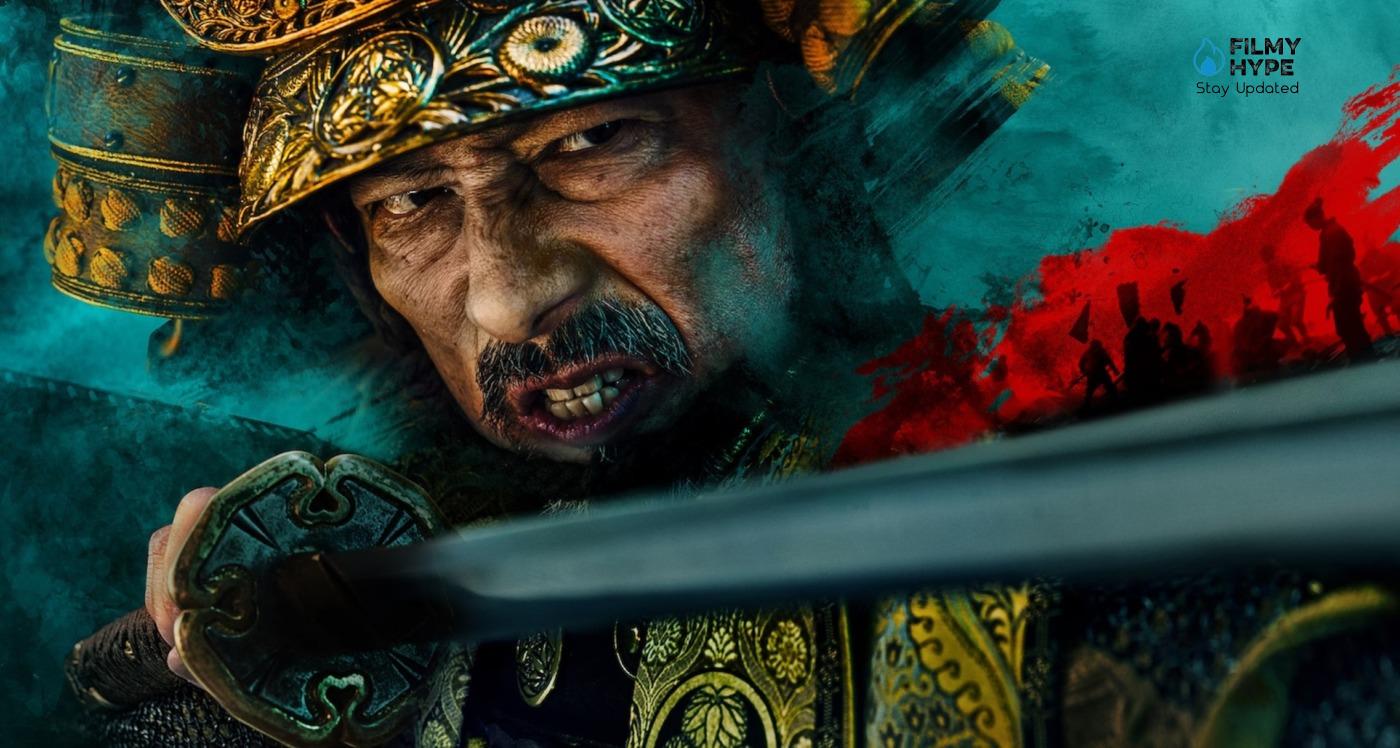
With an almost obsessive attention to historical and cultural details, the series brings James Clavell’s novel to life in a way that few adaptations have been able to do before, faithfully combining the epic narrative with a deep psychological introspection of the characters. Here is Shōgun‘s review. As if that wasn’t enough, the need to find a balance between Clevell’s fictional narrative and historical verisimilitude also contributed to complicating matters. In fact, although, strictly speaking, none of the characters who crowd the pages of Shōgun actually existed, each of them actually corresponds to a more than recognizable historical counterpart. How did it go? Let’s find out in this review of Shōgun whether the new FX series has been able to stand the test of time and keep up with the other famous costume series dedicated to the world of political intrigue, from House of the Dragon to The Witcher… Enjoy the reading!
Shōgun Review 2024: The Story Plot
Shōgun begins with a shipwreck by the Dutch ship Erasmus, commanded by the English privateer John Blackthorne (Cosmo Jarvis), on the Japanese coast. The country is on the brink of chaos, since upon the death of the Emperor, the young heir is at the center of a dispute that involves not only the Daymio Council of Regents, but the religious struggles that pit Christians against other confessions, with the civil war that appears inevitable. Blackthorne and his men are lost prisoners by the cunning and opportunist Kashigi Yabushige (Tadanobu Asano), vassal of Yoshi Toranaga (Hiroyuki Sanada), one of the most esteemed generals and politicians in Japan, as well as guardian of the heir to the throne. In a short time, Blackthorne will find himself playing a key role in the power struggles that are going through the country, which is about to emerge from a totalizing self-isolation and in which the European powers and the Jesuits could end up involved with their centuries-old rivalries. Acting as an interpreter between the rough and somewhat irascible sailor and the refined and adamant Toronaga will be the young Lady Mariko (Anna Sawai), a young and very intelligent woman with a tragic past, with whom Blackthorne will form a very strong bond.
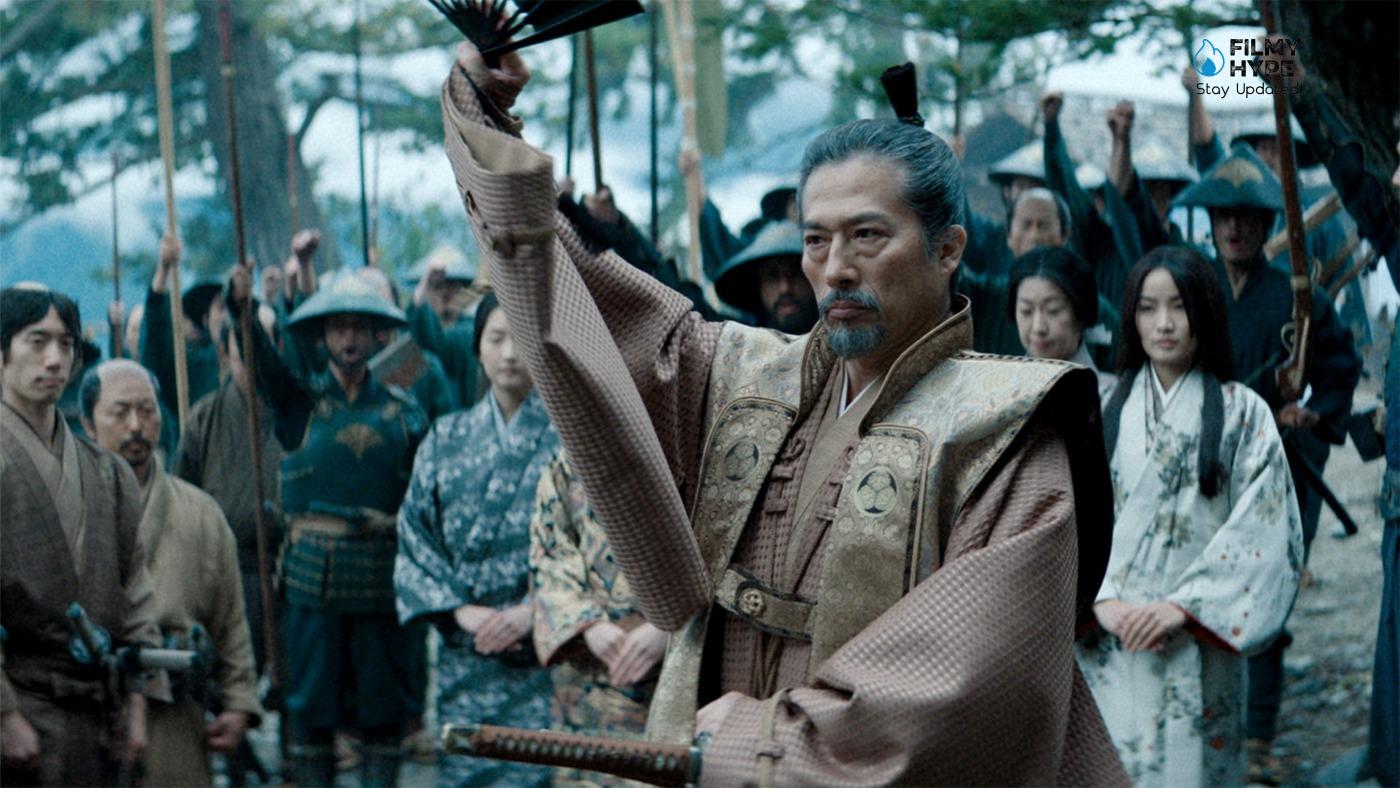
Shōgun bears the signature of Justin Marks and Rachel Kondo, who have performed a true miracle, managing to create a perfect mediation between the original novel, written in the 70s, and the need (now inevitable) to move away from any possible representation of Westernized era, the Japan of the 15th and 16th centuries, of which in the past we have often received a stereotyped and somewhat commercial image. Here, however, the meticulousness of the historical re-enactment goes hand in hand with the desire to place us alongside John Blackthorne, shipwrecked in a country in which he is a sort of alien seen as funny and at the same time impure, and to make us understand a culture and a style of lives absolutely distant from ours. Incredible direction for this series, which knows how to enhance nature, and the wonderful Japanese landscape, as well as give energy and credibility both to the mass scenes (both on sea and land) and above all to the intimacy of the interiors, where the game is played a battle made of mysteries, betrayals, conspiracies, with a play of shadows and lights that is simply magnificent in its ambiguity.
Shōgun does not give the viewer points of reference due to its ability to be changeable, to deceive us from episode to episode, and then show us a different truth each time, yet it does so with coherence while guiding us into a world made of very rigid rules, where the honor, duty, are cogs in a collective engine in which however there is no trust, no true loyalty. In this absurd power game, in this web in which Blackthorne tries to navigate to survive, there is also the West of the hypocritical Church, of the Jesuits, and of the commercial companies that rely on God for their sins and their personal gains. This also makes the series an extraordinary fresco on the concept of power in the historical sense, of the immutability of agents and factors despite time, and space, of the difference between European courts and wooden and bamboo palaces where one goes from tea to seppuku in a few seconds.
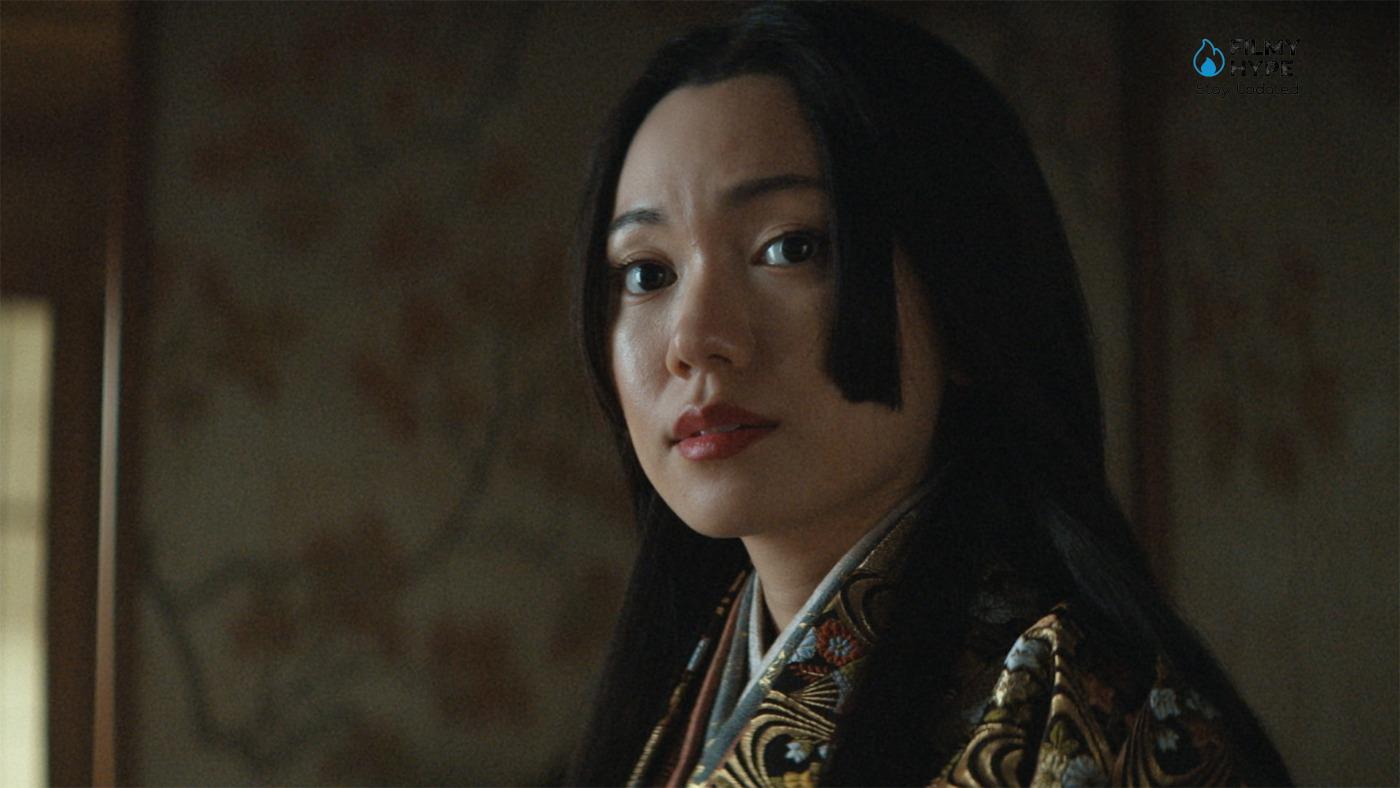
In 1975, Shōgun by James Clavell, an Australian-born American writer, debuted in the USA, offering a gripping adventure that explores the rise to power of daimy Yoshi Toranaga through the eyes of an English navigator, creating an accurate historical and cultural reconstruction of the Japan in the 1600s. In the novel Shōgun, James Clavell intertwines fiction and historical reality, creating characters inspired by emblematic figures. Yoshi Toranaga follows Tokugawa Ieyasu, architect of the Tokugawa Shōgunate of 1603, while the adventures of John Blackthorne evoke those of William Adams, the first Briton in Japan, enriching the narrative with a profound historical background. The novel Shōgun inspired a TV series and a film in 1980, directed by Jerry London. Rachel Kondo and Justin Marks’ new version, available on FX Networks from February 27, 2024, stands out as the most notable adaptation to date.
Shōgun Review 2024 and Analysis
There’s no point in beating around the bush: Shōgun is an authentic masterpiece, both in terms of the meticulous historical reconstruction of the atmosphere of feudal Japan and in terms of the narrative plot, which is truly dynamic and compelling. The balance within the story works in the best possible way, and after a couple of episodes we already find ourselves catapulted into a dense network of plots and power games that are truly impossible to resist. To the solid foundations offered by Clevell’s novel, the series adds great clarity of exposition, which allows the viewer to orient himself with discreet ease in the many streams of the story and enjoy its evocative setting. Of course, there are many names, as well as faces, but there is really no risk of getting lost: the screenplay expertly manages the various characters, their background, and their motivations, reminding us of the charm and narrative balance of the first, memorable seasons of Game of Thrones.
At the center of gravity is a universal theme, namely the meeting between two worlds and two radically different cultures: an opportunity for enormous enrichment, which however can also transform, in the wrong circumstances, into a cataclysm of destructive scope. Even at first viewing, Shōgun stands out from its illustrious 1980 predecessor for the choice to greatly broaden the horizons, and not limit itself to the visual angle of the protagonist John Blackthorne. Obviously, the bold and intelligent English pirate continues to represent the natural starting point for the viewer to explore the Japanese world, because just like us he finds himself taking his first steps in a completely new reality. This time, however, the authors decide to give much more three-dimensionality to the many Japanese characters, letting the story breathe and dividing it into multiple narrative points of view.
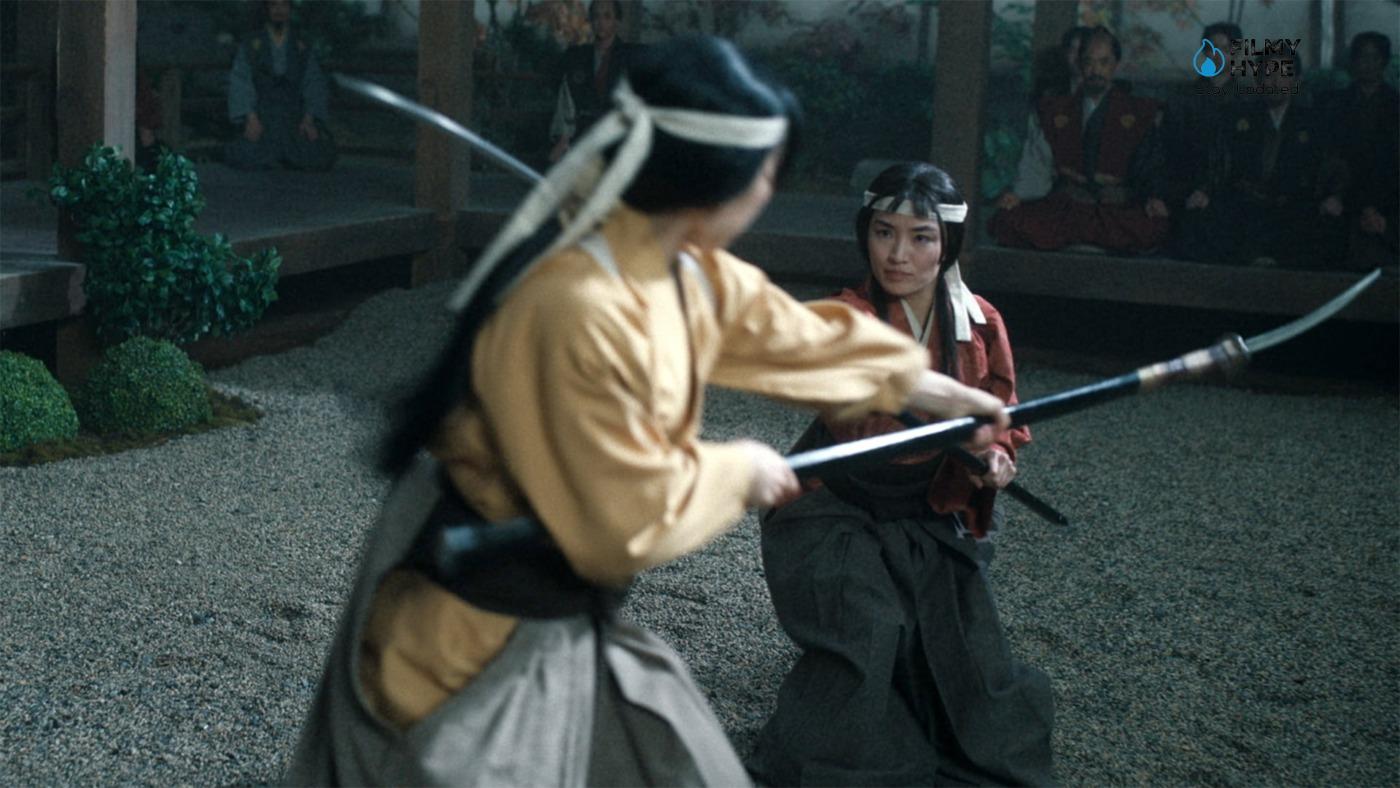
In particular, in the 1980 series the Japanese language was used without any subtitle, so as to further immerse ourselves in the shoes of John Blackthorne, forced to extricate himself from translations and sentences incomprehensible to him. Here, however, the dialogues in Japanese are systematically subtitled, and allow for the development of many interactions between primary and secondary characters without requiring the physiological presence of the protagonist. The result is an authentically choral and multi-focused narrative, capable of giving the right space to all the factions and all the forces vying for supremacy over Japan, and of bringing out the delicate dynamics that bind or oppose the various supporting characters.
The key to the success of Shōgun – which in our opinion can be said to be clearly superior to all the other costume series dedicated to blood, power, love, and conspiracies – however, also and above all lies in the power of its setting. There is very little to do: the majestic natural landscapes and city views of traditional Japan have always been accompanied by an aura of indissoluble charm, which helps to give the FX Networks miniseries a strong, unique, and unmistakable identity. From the majestic Osaka Castle to the coasts of the Kanto region, passing through the small traditional wooden villages, in Shōgun the Rising Sun emerges in all its inimitable splendor. In truth, however, the directors of the various episodes almost never linger on the landscape with virtuosity and overviews and let the setting itself emerge and reveal itself whenever it is necessary and functional to the plot.
In our opinion, this is a laudable choice, entirely consistent with the desire to describe Japan from the inside, without just focusing on the amazed gaze of the Western navigator who stops there for the first time. Without taking anything away from the solid performance of Cosmo Jarvis in the role of John Blackthorne, it is above all the charisma and stage presence of the legendary Hiroyuki Sanada that leaves its mark on the miniseries, shaping a noble, astute, charismatic, and truly legendary character. The actor of Lost, Westworld, Army of the Dead, Bullet Train, and Helix is now a very familiar face on both the small and big screen, and over the course of his colorful filmography he has given us excellent performances, proving to be without any doubt the right person to take on the uncomfortable shoes of Lord Toranaga.
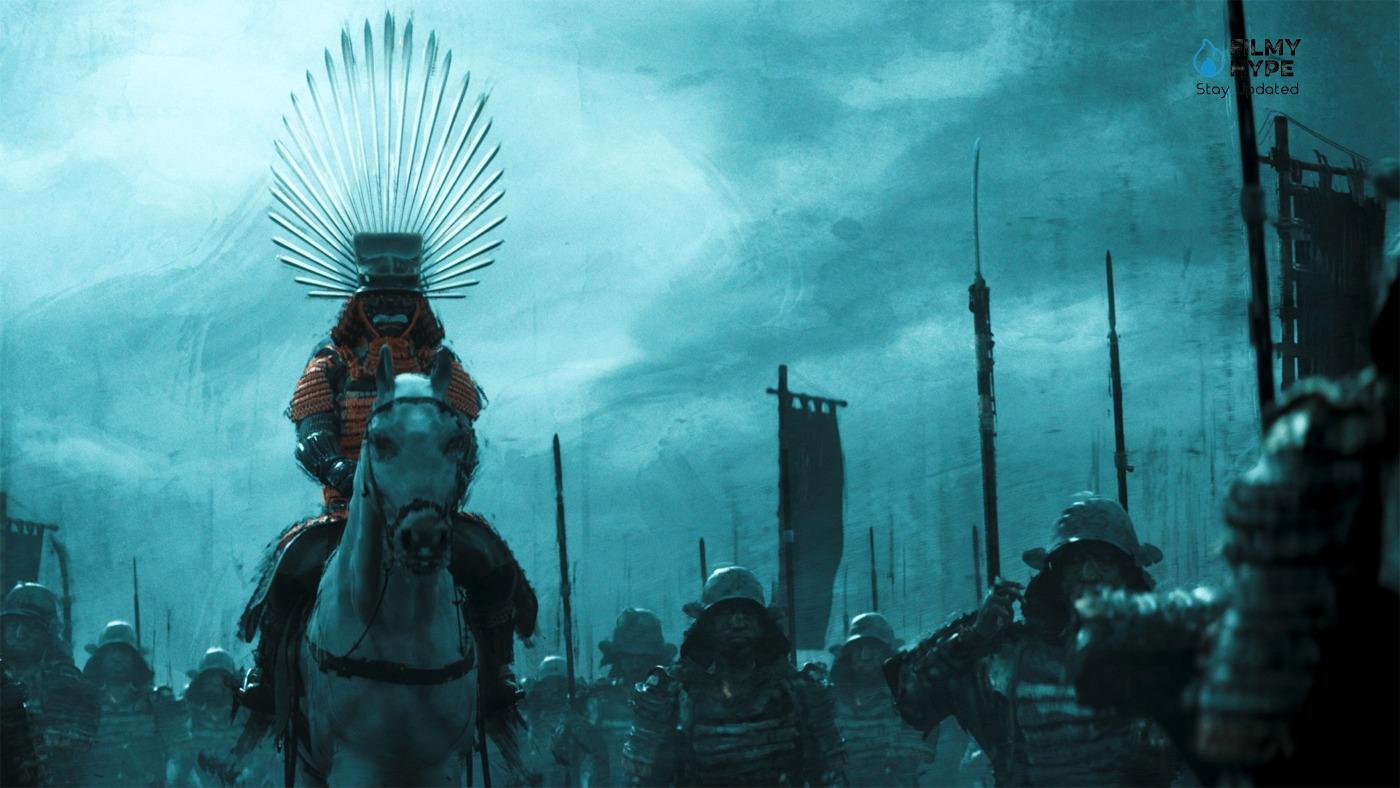
His character, openly inspired by the historical character of Tokugawa Ieyasu, is together with Lady Mariko one of those who benefit most from the new visual angle adopted by the FX Networks series and emerges from the first minutes as a noble and multifaceted figure, worthy of the role that the name Tokugawa actually plays in history books. More generally, the cast of Shōgun proves to be decidedly up to the choral narrative adopted by the authors of the series, with convincing performances capable of solidly characterizing the various characters. The Shōgun has a cast on its side that couldn’t be more guessed. As is known, James Clavell’s novel was a mere reproduction (although often imaginative) of the true protagonists of that historical period which from the end of the 16th to the 17th century led Japan into a series of internal wars from which the Shōgunate emerged as a new process of government. Hiroyuki Sanada, launched at the time by The Last Samurai, makes his Toronaga a concentration of everything that has been fascinating about the Samurai since cinema made them known to us.
In him moves not only the essence of Tokugawa Ieyasu whom Clavell was inspired by, but of the very concept of Prince, also in the Machiavellian sense. A simply brilliant strategist, capable of gestures as extreme as they are calculated, an unparalleled dissembler and deceiver, he is however also a symbol of loyalty and coherence, of altruism and sensitivity. He is counterbalanced not so much by the large crowd of pompous, cruel, and narcissistic enemies, but by that likeable rogue Asano, already seen in the days of Thor, who often seems to almost mimic the Tuco that Eli Wallach created for Sergio Leone. Cosmo Jarvis is a significant surprise. His Blackthorne is different from what Tom Cruise, Kevin Costner, or Richard Harris have given us in the past, regarding the concept of “white savior”. Here there is a continuous exchange of knowledge, points of view, and experience, but not even for an instant does he appear at ease, in a culture where every word has a decisive weight, where every gesture is studied in detail, where self-discipline takes on often the appearance of a castration of the personality.
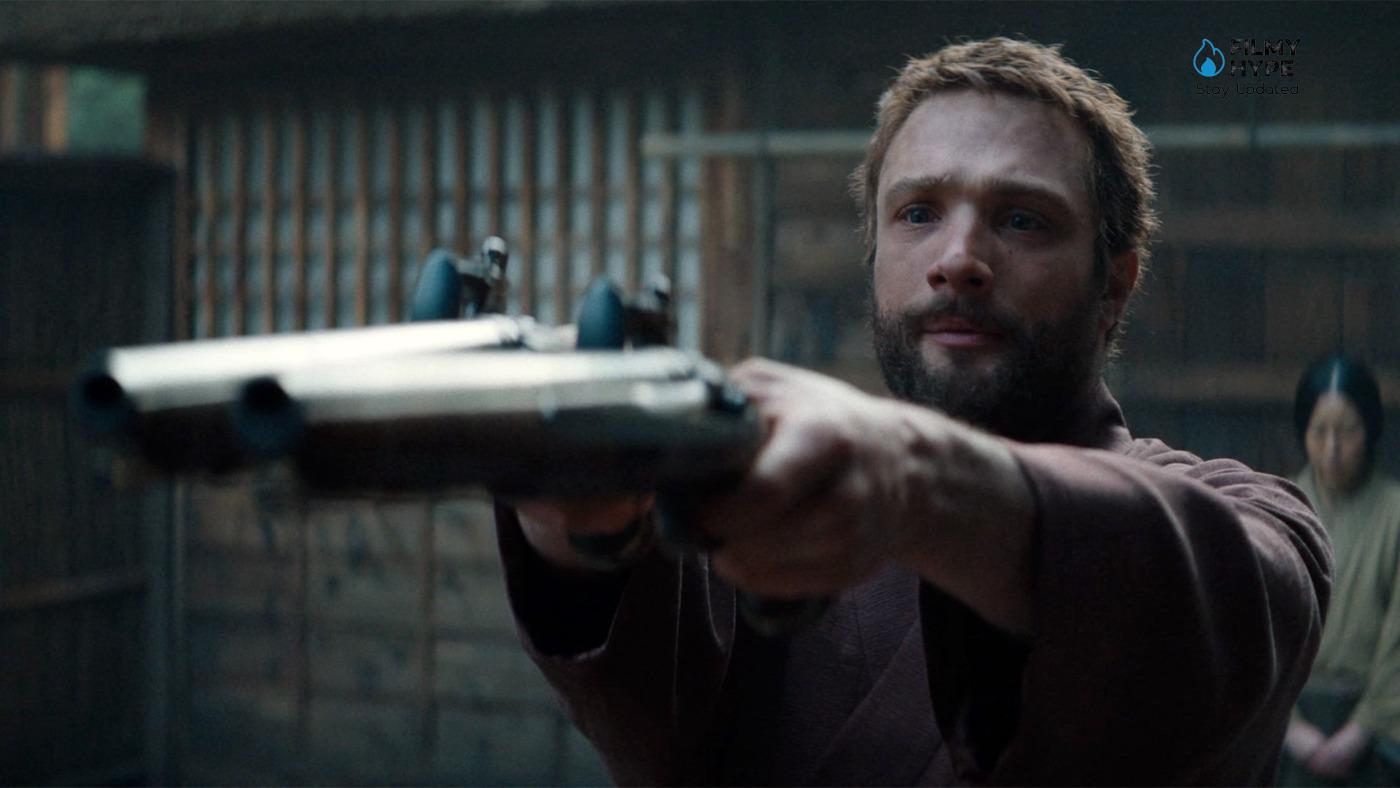
However, Shōgun also gives us a fantastic female character in Anna Sawai’s Mariko, poised not between two worlds, but between two desires: redemption for her family and a freedom that slowly creeps into her thanks to that strange gaijin, that rough but spontaneous foreigner. The dialogues are meticulously crafted, recalling a quality that not even House of Dragon can match, and it is no coincidence that they are almost always in the hands of the various nuns, princesses, concubines, or courtesans. Yes, because women are the true bearers of Japanese semantics, regardless of what decades of films, anime, and manga have often suggested to us. A series against Japanese chauvinism? Yes too, but without giving up its function as a parallel narrative of history, without affecting the authenticity of a process where modernity finds a minority place. This is not a series for the Western audience per se, it is a series about Japan that can teach something to the Western audience, it is a significant difference. An atmosphere of death and decadence remains, matched only by the extraordinary sober elegance that the sets, costumes, and music can bestow.
In this first season, Shōgun already establishes a standard of overall quality that cannot leave anyone indifferent, which cannot fail to have consequences (at least we hope), in everything that seriality of a certain genre will be in the future. It goes without saying that the episodes are consumed at an increasing rate, it is not possible to escape this labyrinth of spies, duels, enigmas, and strategies, this fresco that exudes truth at every moment. In conclusion, Shōgun is a series that breathes new life into a familiar story, elevating it to a work of television that is both high-quality entertainment and a profound reflection on intersecting cultures and times. Its technical and narrative excellence and its success in making the past vibrant and relevant for contemporary audiences construct an epic and moving journey through ancient Japan. An unmissable work for fans of history, Japanese culture, and epic fiction.
Shōgun Review 2024: The Last Words
Shōgun is a valid product, which will certainly please both those who have read Clavell’s novels and those seduced by the inexhaustible charm of feudal Japan, but also those looking for a series that can be raw and violent, that is not afraid to show injustices and decidedly negative cultures, and also to those who appreciate stories full of political intrigue and betrayal “à la Game of Thrones”, with constant reversals of front and changes in the balance of power. An extremely successful cast, in which Hiroyuki Sanada and Tadanobu Asano stand out, respectively giving us an inscrutable and fascinating Toranaga and a Yabushige with whom it is impossible not to empathize. Shōgun wins the challenge and reinvents the 1980 television classic with a fresh and captivating language: between love, intrigue, politics, and war, the atmospheres of feudal Japan come to life in a choral plot worthy of Game of Thrones.






